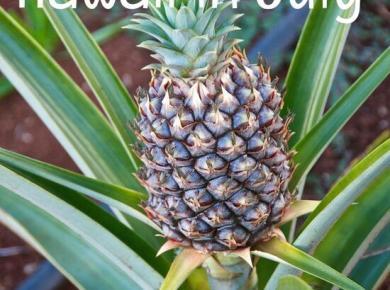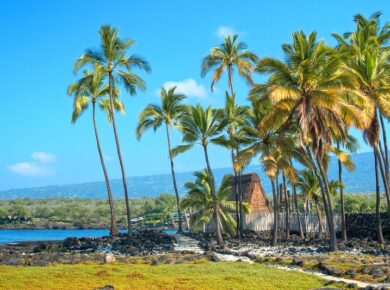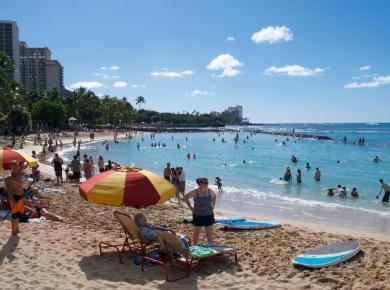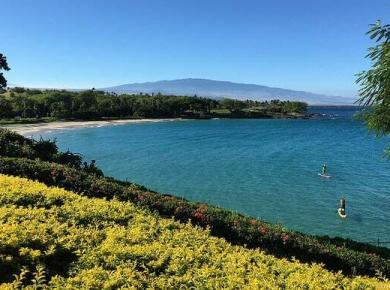 In today’s post I wanted to share a little bit of a grammar lesson with you. Since I’ve been blogging about Hawaii as a great vacation destination, I started noticing that sometimes people incorrectly use the word Hawaiian when they should actually use the word Hawaii.
In today’s post I wanted to share a little bit of a grammar lesson with you. Since I’ve been blogging about Hawaii as a great vacation destination, I started noticing that sometimes people incorrectly use the word Hawaiian when they should actually use the word Hawaii.
Do you know when you should use the word Hawaiian and when you shouldn’t? For most of us mainlanders it can be a bit of a mystery that sometimes results in an accidental mistake. I have to admit that I’ve incorrectly use the words in the past.
To better understand how to use Hawaiian, let’s look at the word’s definition. As a noun, the word Hawaiian has these meanings:
- Members of the ethnic group indigenous to the Hawaiian Islands (Source). Note that a resident of Hawaii is not necessarily a Hawaiian unless they are of specific Hawaiian descent.
- The native language of Hawaii
As an adjective, Hawaiian refers to:
- Relating to the land and/or indigenous people and culture and native language of Hawaii.
Let’s now look at some examples of the words in use:
Incorrect: I found a great Hawaiian airfare sale on American Airlines’ Web site.
Correct: I found a great airfare sale to Hawaii on American Airlines’ Web site.
Incorrect: I’m going on a Hawaiian vacation.
Correct: I’m going on a Hawaii vacation.
When I get confused on if I should use Hawaii or Hawaiian, I substitute another state into the sentence and ask myself if it sounds right. For example, if I’m planning a vacation to Florida, I wouldn’t ever say I’m going on a Floridian vacation. Or let’s say I’m looking for airfare to New Mexico, I’d never say I’m looking for New Mexican airfare deals. That would sound silly, wouldn’t it?
Now let me explain that I’m no grammar girl, so my explanations may not be absolute, but it is my best understanding. I hope that you’ve found this little grammar lesson to be interesting. Are there any other ways you have seen these words misused? Any thoughts you’d like to add on this topic? I’d love to hear them!





7 comments
“I found a great Hawaiian airfare…” Unless they meant Hawaiian Airlines. I’m so used to seeing that, that I automatically assumed it was Hawaiian Airlines before I finished the sentence. 🙂
It’s really like any other ethnic identifier… you don’t go on a Chinese vacation, you go on a China vacation. You don’t go on a French vacation, you go on a France vacation.
Though I think saying Hawaiian is less obvious than saying Chinese or French or whatever.
@ Evelyn – wouldn’t you know that what actually prompted this post is that I noticed a blog post on another blog with the title of “Hawaiian Airfare on Sale on United Airlines” When I saw that I thought huh? Hawaiian Airlines is promoting a sale on United Airlines…why would they do that. Of course they had just used Hawaiian when they should have used Hawaii.
@ jim – that’s very true…sounds very odd in those scenarios!
So, a Blue Hawaiian is an native of Hawaii that is sad, but a Blue Hawaii comes with an umbrella and is best enjoyed with a view of the ocean. 🙂
It’s understandable why some people can get confused, but the above explanations and examples are helpful. One of the tour companies we’ve used in the past was Blue Hawaiian Helicopters, and while I know it could be different for a proper name like a business, it doesn’t exactly help.
One of the things I get tripped up on is whether something is “on Maui” or “in Maui”. I tend to say something like “we’re spending our vacation on Maui” which kind of fits because it’s on island name. You could also say “Cheeseburger in Paradise in Maui”. Don’t know if that fits in this thread or not.
It could also just be me. 🙂
I’m with you Kris, the “on Maui” and “in Maui” confuse me. I’ve decided to go with “on” when I’m talking about 1 island and “in” the rest of the time. If I’m wrong somebody please correct me.
Now as for Hawaii vs. Hawaiian when referring to the land, it seems to me there needs to be a little latitude in their use.
Consider:
1. The islands are the Hawaiian Islands if your speaking of geography.
2. The state is Hawaii.
3. The largest island in the Hawaiian Islands and the State of Hawaii is Hawaii.
Is there any wonder we’re confused?
Languages change over the years. The AP stylebook you quote above is a reflection of those changes. It will be interesting to see of the major dictionaries now update their definitions of Hawaiian.
Sheila, I hear there’s rough weather coming your way, baton down the hatches and best wishes. 🙂
David
@ Kris – the in/on thing confuses me. Maybe Evelyn can enlighten us. 🙂
@ David – Thanks for the kind wishes about Hanna. We’re thankful that we didn’t have any damage!
That’s a tough one. I say “a hawaiian vacation” all the time. 🙂